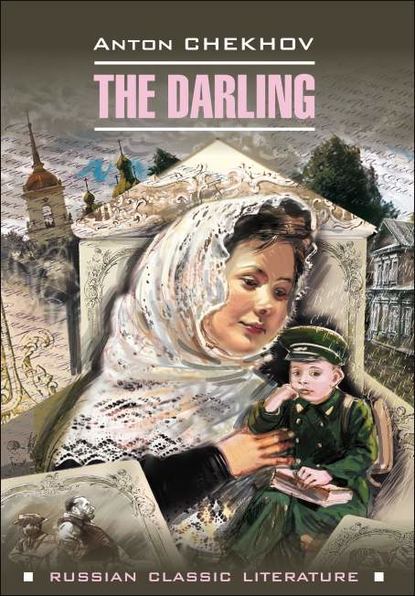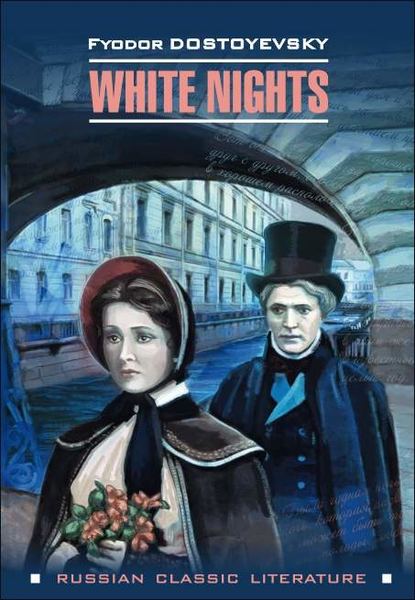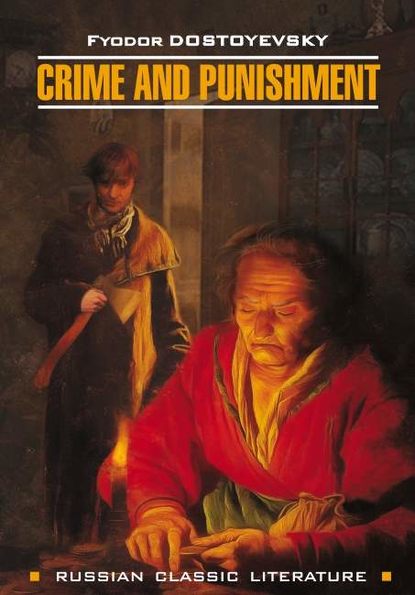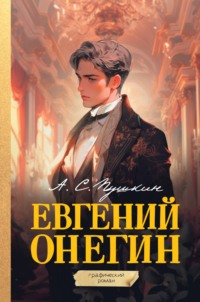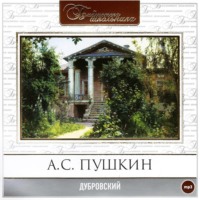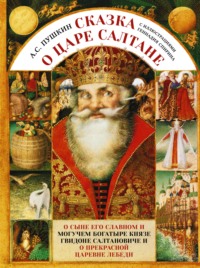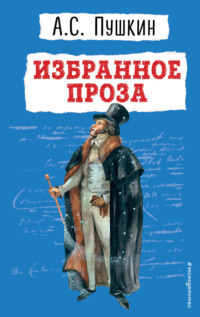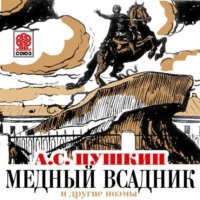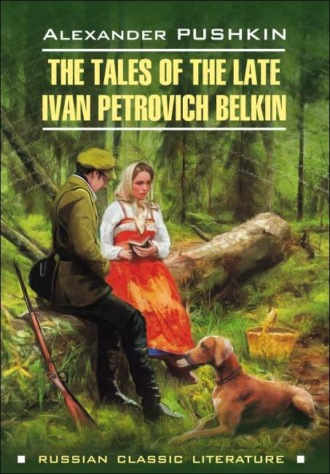
Полная версия
Повести Белкина / The Tales of the Late Ivan Petrovich Belkin
Four versts[13] from my house there was a rich estate belonging to the Countess B —; but nobody lived there except the steward. The Countess had only visited her estate once, during the first year of her married life, and then she had remained there only a month. But in the second spring of my secluded life, a report was circulated that the Countess, with her husband, was coming to spend the summer on her estate. Indeed, they arrived at the beginning of June.
The arrival of a rich neighbor is an important event in the lives of country people. The landed proprietors and the people of their household talk about it for two months beforehand, and for three years afterwards. As for me, I must confess that the news of the arrival of a young and beautiful neighbor affected me strongly. I burned with impatience to see her, and the first Sunday after her arrival, I set out after dinner for the village of A —, to pay my respects to the Countess and her husband, as their nearest neighbor and most humble servant.
A lackey conducted me into the Count’s study, and then went to announce me. The spacious room was furnished with every possible luxury. The walls were lined with bookcases, each surmounted by a bronze bust; over the marble mantelpiece was a large mirror; on the floor was a green cloth covered with carpets. Unaccustomed to luxury in my own poor corner, and not having seen the wealth of other people for a long time, I awaited the appearance of the Count with some little trepidation, as a suppliant from the provinces awaits the entrance of the minister. The door opened, and a handsome-looking man, of about thirty-two, entered the room. The Count approached me with a frank and friendly air: I tried to be self-possessed and began to introduce myself, but he anticipated me. We sat down. His conversation, which was easy and agreeable, soon dissipated my awkward bashfulness; and I was already beginning to recover my usual composure, when the Countess suddenly entered, and I became more confused than ever. She was indeed beautiful. The Count presented me. I wished to appear at ease, but the more I tried to assume an air of unconstraint, the more awkward I felt. In order to give me time to recover myself and to become accustomed to my new acquaintances, they began to talk to each other, treating me as a good neighbor, and without ceremony. Meanwhile, I walked about the room, examining the books and pictures. I am no judge of pictures, but one of them attracted my attention. It represented some view in Switzerland, but it was not the painting that struck me, but the circumstance that the canvas was shot through by two bullets, one planted just above the other.
“A good shot, that!” said I, turning to the Count.
“Yes,” replied he, “a very remarkable shot … Do you shoot well?” he continued.
“Tolerably,” I replied, rejoicing that the conversation had turned at last upon a subject that was familiar to me. “At thirty paces I can manage to hit a card without fail – I mean, of course, with a pistol that I am used to.”
“Really?” said the Countess, with a look of the greatest interest. “And you, my dear, could you hit a card at thirty paces?”
“Some day,” replied the Count, “we will try. In my time I did not shoot badly, but it is now four years since I touched a pistol.”
“Oh!” I observed. “In that case, I don’t mind laying a wager that Your Excellency will not hit the card at twenty paces: the pistol demands daily practice. I know that from experience. In our regiment I was reckoned one of the best shots. It once happened that I did not touch a pistol for a whole month, as I had sent mine to be mended; and would you believe it, Your Excellency, the first time I began to shoot again, I missed a bottle four times in succession at twenty paces! Our captain, a witty and amusing fellow, happened to be standing by, and he said to me: ‘It is evident, my friend, that you will not lift your hand against the bottle.’ No, Your Excellency, you must not neglect to practice, or your hand will soon lose its cunning. The best shot that I ever met used to shoot at least three times every day before dinner. It was as much his custom to do this, as it was to drink his daily glass of brandy.”
The Count and Countess seemed pleased that I had begun to talk.
“And what sort of a shot was he?” asked the Count.
“Well, it was this way with him, Your Excellency: if he saw a fly settle on the wall – you smile, Countess, but, before Heaven, it is the truth – if he saw a fly, he would call out: ‘Kuzka, my pistol!’ Kuzka would bring him a loaded pistol – bang! – and the fly would be crushed against the wall.”
“Wonderful!” said the Count. “And what was his name?”
“Silvio, Your Excellency.”
“Silvio!” exclaimed the Count, starting up. “Did you know Silvio?”
“How could I help knowing him, Your Excellency: we were intimate friends; he was received in our regiment like a brother officer, but it is now five years since I had any news of him. Then Your Excellency also knew him?”
“Oh, yes, I knew him very well. Did he ever tell you of one very strange incident in his life?”
“Does Your Excellency refer to the slap in the face that he received from some scamp at a ball?”
“Did he tell you the name of this scamp?”
“No, Your Excellency, he never mentioned his name … Ah! Your Excellency,” I continued, guessing the truth; “pardon me … I did not know … could it have been you?”
“Yes, I myself,” replied the Count, with a look of extraordinary distress; “and that picture with a bullet through it is a memento[14] of our last meeting.”
“Ah, my dear,” said the Countess, “for Heaven’s sake, do not speak about that; it would be too terrible for me to listen to.”
“No,” replied the Count; “I will relate everything. He knows how I insulted his friend, and it is only right that he should know how Silvio revenged himself.”
The Count pushed a chair toward me, and with the liveliest interest I listened to the following story:
“Five years ago I got married. The first month – the honeymoon – I spent here, in this village. To this house I am indebted for the happiest moments of my life, as well as for one of its most painful recollections.
“One evening we went out together for a ride on horseback. My wife’s horse became restive; she grew frightened, gave the reins to me, and returned home on foot. I rode on before. In the courtyard I saw a traveling carriage, and I was told that in my study sat waiting for me a man who would not give his name, but who merely said that he had business with me. I entered the room and saw in the darkness a man, covered with dust and wearing a beard of several days’ growth. He was standing there, near the fireplace. I approached him, trying to remember his features.
“‘You do not recognize me, Count?’ said he, in a quivering voice.
“‘Silvio!’ I cried, and I confess that I felt as if my hair had suddenly stood on end.
“‘Exactly,’ continued he. ‘There is a shot due me, and I have come to discharge my pistol. Are you ready?’
“His pistol protruded from a side pocket. I measured twelve paces and took my stand there in that corner, begging him to fire quickly, before my wife arrived. He hesitated, and asked for a light. Candles were brought in. I closed the doors, gave orders that nobody was to enter, and again begged him to fire. He drew out his pistol and took aim … I counted the seconds … I thought of her … A terrible minute passed! Silvio lowered his hand.
“‘I regret,’ said he, ‘that the pistol is not loaded with cherry stones … the bullet is heavy. It seems to me that this is not a duel, but a murder. I am not accustomed to taking aim at unarmed men. Let us begin all over again; we will cast lots as to who shall fire first.’ My head went round … I think I raised some objection … At last we loaded another pistol, and rolled up two pieces of paper. He placed these latter in his cap – the same through which I had once sent a bullet – and again I drew the first number.
“‘You are devilishly lucky, Count,’ said he, with a smile that I shall never forget.
“I don’t know what was the matter with me, or how it was that he managed to make me do it … but I fired and hit that picture.”
The Count pointed with his finger to the perforated picture; his face burned like fire; the Countess was whiter than her own handkerchief; and I could not restrain an exclamation.
“I fired,” continued the Count, “and, thank Heaven, missed my aim. Then Silvio – at that moment he was really terrible – Silvio raised his hand to take aim at me. Suddenly the door opens, Masha rushes into the room, and with a shriek throws herself upon my neck. Her presence restored to me all my courage.
“‘My dear,’ said I to her, ‘don’t you see that we are joking? How frightened you are! Go and drink a glass of water and then come back to us; I will introduce you to an old friend and comrade.’
“Masha still doubted.
“‘Tell me, is my husband speaking the truth?’ said she, turning to the terrible Silvio. ‘Is it true that you are only joking?’
“‘He is always joking, Countess,’ replied Silvio: ‘once he gave me a slap in the face in jest; on another occasion he sent a bullet through my cap in jest; and just now, when he fired at me and missed me, it was all in jest. And now I feel inclined to have a joke.’
“With these words he raised his pistol to take aim at me – right before her! Masha threw herself at his feet.
“‘Rise, Masha; are you not ashamed!’ I cried in a rage. ‘And you, sir, will you stop making fun of a poor woman? Will you fire or not?’
“‘I will not,’ replied Silvio. ‘I am satisfied. I have seen your confusion, your alarm. I forced you to fire at me. That is sufficient. You will remember me. I leave you to your conscience.’
“Then he turned to go, but pausing in the doorway, and looking at the picture that my shot had passed through, he fired at it almost without taking aim, and disappeared. My wife had fainted away; the servants did not venture to stop him, the mere look of him filled them with terror. He went out upon the steps, called his coachman, and drove off before I could recover myself.”
The Count fell silent. In this way I learned the end of the story, whose beginning had once made such a deep impression upon me. The hero of it I never saw again. It is said that Silvio commanded a detachment of Insurgents during the revolt under Alexander Ypsilanti[15], and that he was killed in the battle of Skulyani.
The Snowstorm
Horses dash across the slopes,Trampling snow deep-drifted …By the wayside stands a church,Lonely cross uplifted.* * *Suddenly a snowstorm flingsTufted flakes about us,O’er the sledge with whistling wingFlies a crow to flout us.Weird his cry, foreboding grief!Gathering their forces,Manes upraised, toward the darkPeer the speeding horses …Zhukovsky[16]Toward the end of the year 1811, a memorable period for us, the good Gavrila Gavrilovich R – was living on his estate of Nenaradovo. He was celebrated throughout the district for his hospitality and kind-heartedness. The neighbors were constantly visiting him: some to eat and drink; some to play “Boston” at five kopecks[17] with his wife, Praskovya Petrovna; and some to look at their daughter, Marya Gavrilovna, a pale, slender girl of seventeen. She was considered wealthy, and many desired her for themselves or for their sons.
Marya Gavrilovna had been brought up on French novels, and consequently was in love. The object of her choice was a poor sub-lieutenant, who was then on leave of absence in his village.
It need scarcely be mentioned that the young man returned her passion with equal ardor, and that the parents of his beloved one, observing their mutual inclination, forbade their daughter to think of him, and gave him a worse reception than if he were a retired assessor[18].
Our lovers corresponded with each other and daily saw each other alone in the little pine wood or near the old chapel. There they exchanged vows of eternal love, lamented their cruel fate, and formed various plans. Corresponding and conversing in this way, they arrived quite naturally at the following conclusion:
If we cannot exist without each other, and the will of hard-hearted parents stands in the way of our happiness, why cannot we do without their consent?
Конец ознакомительного фрагмента.
Текст предоставлен ООО «ЛитРес».
Прочитайте эту книгу целиком, купив полную легальную версию на ЛитРес.
Безопасно оплатить книгу можно банковской картой Visa, MasterCard, Maestro, со счета мобильного телефона, с платежного терминала, в салоне МТС или Связной, через PayPal, WebMoney, Яндекс.Деньги, QIWI Кошелек, бонусными картами или другим удобным Вам способом.
Примечания
1
The Minor – a comedy by D. Fonvizin, a Russian writer of the 18th century
2
née – (French) born with the name
3
steward – (old use) a man who is employed to look after a house and lands
4
corvée – (French) an obligation imposed on inhabitants of a district to perform services as repair of reads, bridges, etc. for little or no remuneration
5
Follows an anecdote, which we do not give, deeming it superfluous; we assure the reader, however, that it contains nothing prejudicial to the memory of Ivan Petrovich Belkin
6
Indeed, in Mr. Belkin’s manuscript, there is an inscription, in the author’s hand, over each tale: “Heard by me from such-and-such a person” (follow rank or title and initials of name and surname). We quote for the curious student: The Postmaster was told to him by Titular Counsellor A.G.N.; The Shot by Lieutenant I.L.P.; The Undertaker by B.V., shop-assistant; The Snowstorm and Mistress into Maid by Miss K.I.T.
7
Baratynsky – a Russian poet of the 19th century
8
Hussars – soldiers of light cavalry
9
faro – (cards) a gambling game in which players bet on cards as they are drawn from the dealer’s box (var. of Pharaoh)
10
Burtzov, an officer of the Hussars, notorious for his drinking powers and escapades (TRANSLATOR’S NOTE)
11
Denis Davydov, author, 1781–1839 (TRANSLATOR’S NOTE)
12
liaison – (French) a sexual relationship between a man and woman not married to each other
13
verst – old Russian measure of distance equivalent to 3500 feet or 0.6629 miles or 1.067 kilometres
14
memento – (Latin) a small object which reminds one of something
15
Alexander Ypsilanti – (1792–1828), Greek patriot and revolutionary leader
16
Zhukovsky – a Russian poet of the 18th century
17
kopecks – a kopeck is one hundredth of a ruble (Russian money)
18
assessor – a person whose job is to calculate the value of property or the amount of income or taxes


